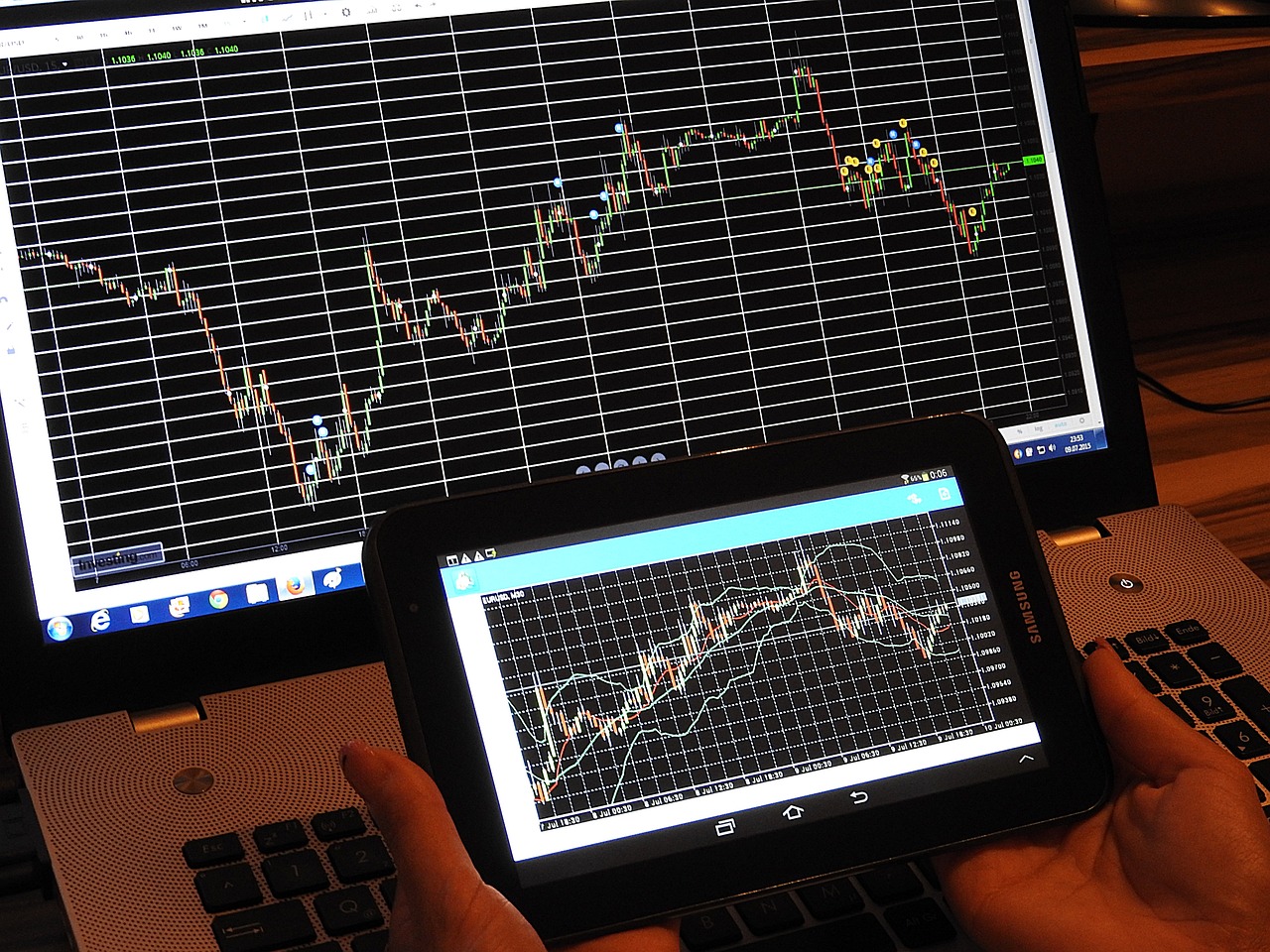Finance ,Insurance, loan ,Stock & Crypto
Algorithmic Trader: Forget Day Trading, This is the FUTURE: Enter the World of Algorithmic Trading
Financial Freedom Unlocked: How Algorithmic Trading Can Put Your Money on Automatic Credit Wallet
World of Algorithmic Trading
The financial landscape is ever-evolving, and algorithmic trading has emerged as a powerful tool, transforming how markets operate and creating exciting career opportunities. But before diving headfirst into the world of algorithms and automated trades, it's crucial to understand the intricacies of this field and the skills needed to navigate its complexities.
Algorithmic Trader
- Description: An algorithmic trader develops and implements trading algorithms that are used to automatically buy and sell securities. This can include high-frequency trading algorithms that exploit small market inefficiencies or longer-term algorithms that are based on fundamental analysis.
- Skills: Strong understanding of financial markets and trading strategies; experience with programming and financial modeling; ability to think critically and solve complex problems.
- Demand: The demand for algorithmic traders is growing, but this is a highly competitive field. Only the best and brightest candidates with the right skills and experience are likely to be successful.
What is an Algorithmic Trader?
At its core, an algorithmic trader is a financial engineer who builds and deploys computer programs, known as algorithms, to execute trades automatically based on pre-defined parameters. These algorithms can range from simple rules-based systems to complex models incorporating machine learning and advanced statistical techniques. Their aim is to identify profitable opportunities and execute trades swiftly and efficiently, potentially outperforming human traders in terms of speed and consistency.
Demystifying the Skills:
Becoming a successful algorithmic trader requires a unique blend of technical and financial expertise. Here are the key skills you'll need to hone:
- Financial Acumen: A thorough understanding of financial markets, instruments, and trading strategies is paramount. This includes familiarity with technical analysis, fundamental analysis, and quantitative finance concepts.
- Programming Prowess: Familiarity with programming languages like Python, C++, and R is essential for building and optimizing your algorithms. Additionally, knowledge of database management and APIs for accessing market data is crucial.
- Mathematical Aptitude: Strong mathematical and statistical skills are necessary to analyze market data, develop trading models, and test your algorithms' effectiveness.
- Problem-Solving Expertise: The ability to identify and solve complex algorithmic issues through critical thinking and debugging is vital.
Advantages of Algorithmic Trading:
Speed and Efficiency:
- Trades are executed instantly and automatically, capitalizing on fleeting market opportunities humans might miss.
- Algorithms can analyze vast amounts of data and identify patterns much faster than humans, leading to potentially better entry and exit points.
Reduced Emotional Trading:
- Emotions can cloud judgment and lead to bad trading decisions. Algorithms are emotionless, executing trades based on pre-defined rules and logic, potentially leading to more disciplined and consistent results.
Backtesting and Optimization:
- Strategies can be thoroughly tested on historical data before deployment, reducing risk and increasing confidence.
- Algorithms can be continuously optimized based on performance data, leading to potential improvements over time.
Cost-Effectiveness:
- Automated trading can sometimes reduce transaction costs due to high-volume discounts and efficient order execution.
- Eliminates the need for human traders, potentially lowering personnel costs.
Flexibility and Customization:
- Strategies can be tailored to specific investment goals and risk tolerances.
- Algorithms can be designed to trade various instruments, from stocks and options to futures and currencies.
24/7 Trading:
- Markets never sleep, and neither do your algorithms, potentially leading to increased opportunities for profit.
- Can capitalize on global market movements while you sleep or focus on other tasks.
Important to remember that algorithmic trading also comes with risks:
- Technical issues: System failures or bugs can lead to costly mistakes.
- Market volatility: Unexpected events can disrupt even the best algorithms.
- Overfitting: Strategies optimized on historical data might not perform well in real-time.
- Regulatory changes: Compliance with evolving regulations can add complexity.
Ultimately, algorithmic trading can be a powerful tool for skilled individuals and institutions, but it requires careful consideration of its advantages, risks, and ongoing commitment to learning and adaptation.
High Demand, High Competition:
The demand for skilled algorithmic traders is undeniably growing, driven by the increasing automation of financial markets. However, it's important to recognize that this is a highly competitive field. Hedge funds, investment banks, and proprietary trading firms attract top talent, often requiring advanced degrees and relevant experience. Additionally, regulations and the ever-changing market landscape demand continuous learning and adaptation.
Is it Right for You?
Before embarking on this path, consider your personality and career goals. Algorithmic trading thrives on discipline, logic, and analytical thinking. Are you comfortable making decisions based on data and models rather than emotions? Do you enjoy spending significant time coding and troubleshooting complex systems? Thriving in this role requires passion for both finance and technology, coupled with a willingness to face challenges and adapt to a rapidly evolving environment.
Beyond the Skills:
While technical skills are the foundation, soft skills like communication and teamwork are crucial. Collaboration with data scientists, financial analysts, and risk management professionals is essential for developing and implementing successful trading strategies. Additionally, clear communication with leadership and stakeholders is vital for gaining trust and explaining the logic behind your algorithms.
The Evolving Landscape:
As technology advances, the world of algorithmic trading will continue to evolve. This opens exciting possibilities like incorporating artificial intelligence and natural language processing into trading algorithms. However, it also means staying abreast of regulatory changes and ethical considerations surrounding algorithmic trading's impact on market dynamics.
In Conclusion:
Algorithmic trading presents a fascinating and demanding career path for those with the right skills and passion. Before diving in, carefully assess your interests, strengths, and the commitment required to succeed in this highly competitive field. Remember, continuous learning, adaptability, and a strong foundation in both finance and technology will be your guiding lights in navigating the ever-changing world of algorithmic trading.
Additional Resources:
- The Society of Quantitative Analysts (SQA)
- Algorithmic Trading Journal
- QuantStart
Remember, this article is just a starting point. Conduct thorough research, network with professionals, and explore available courses and certifications to refine your skills and understanding before embarking on your algorithmic trading journey.
Writer
Devraj Gorai


























